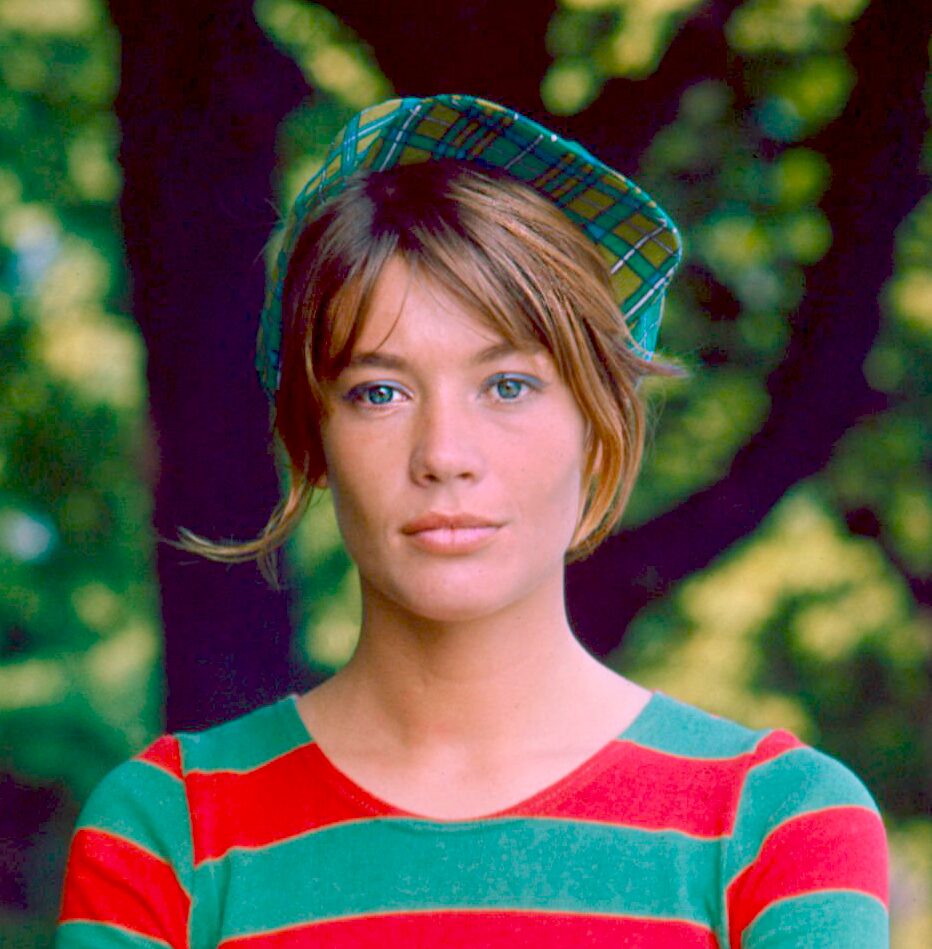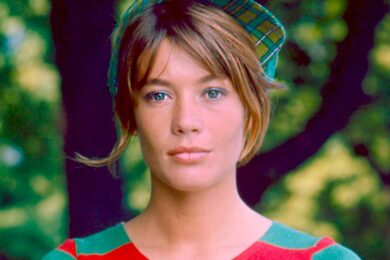As was the custom in pre-internet days, I was introduced to Françoise Hardy by a trusted adviser, an older friend, through the medium of mixtapes that were filled with thrillingly strange, beautiful and obscure music. One such tape featured a handful of songs by Hardy, as well as some by Serge Gainsbourg. I was delighted by the provocations and groovy arrangements of the Gainsbourg tracks but with Hardy, I – like many before and after me – simply fell head over heels. I don’t have the cassette anymore but I can still remember the songs that were on it: ‘Tous Les Garçons Et Les Filles’, ‘Le Temps De L’Amour’, ‘Mon Amie La Rose’, ‘Il N’y A Pas D’Amour Heureux’. Four songs that sealed my fate; the main reason I’m still writing and thinking about French music to this day.
Those songs are about as great an introduction to Hardy’s 1960s work as possible. Despite being widely considered the queen of yé-yé, an ‘it’ girl who was adored by Dylan, The Beatles and The Rolling Stones, much of Hardy’s appeal lay in the fact that she seemed apart from the communal buzz and physical thrust of rock & roll. She was shy, suffering from severe stage fright, and her early songs, many of which were self-penned, are defined by a melancholy apartness from the world and a wisdom beyond her years – no wonder she continued to be so appealing to subsequent generations of tortured teens. As I’ve written elsewhere on this site, she had a young Morrissey trumped in the ‘old-and-world-weary-before-their-time’ stakes: at the age of 23, she released a song called ‘Ma Jeunesse Fout L’Camp’ – which translates as ‘My Youth Is Disappearing’, while ‘Mon Amie La Rose’ also contemplates the passing of youth, beauty and ultimately life itself.
These were both songs that were created for her, by lyricists and composers who were responding to the deep melancholy, or ‘spleen’, that Hardy had already located beneath the frantic new ‘rock’ sounds (Baudelaire’s poem ‘Spleen’ begins, “I am like the king of a rainy land/ Wealthy but powerless, both young and very old”).
Hardy recorded many songs that were tailor-made for her, as well as many covers (including French-language versions of British songs, as well as Italian, or even German tunes) but she also wrote many of her own. She was a pioneer in this regard, as in so many others – ‘Tous Les Garçons Et Les Filles’, her breakthrough song, was one of hers and she was the first of her generation to write her own material, often working with musicians, arrangers and producers from both sides of the Channel. She also took the (again, rare-at-the-time) decision in 1967 to set up her own publishing company, Kundalini, and a record label called Asparagus.
Prior to that, her early LPs were largely assembled from tracks on EP releases that were known in France as ‘Super 45s’. Exceedingly charming early tracks are tinny, a little surf-y, with Hardy’s vocals drowned in reverb. By the time of her fifth album, 1965’s L’Amitié, she was delivering rippling, arpeggio-heavy ballads, fuzzy beat stompers and upbeat folk-pop. Her own compositions are beautiful, sad and deceptively complex in their construction, rarely relying on verse-chorus-verse structures and filled with unusual twists and changes.
Hardy always sang softly, at times nearly whispering, and relied on subtle inflections. A sudden, lifted note at the end of ‘Il N’y A Pas D’Amour Heureux’ – a cover of Georges Brassens’ adaptation of a Louis Aragon poem – is quietly devastating.
Once in her independent phase, she released an album that was to be her orchestral pop peak, 1968’s Comment Te Dire Adieu, including covers of songs by Antônio Carlos Jobim, Leonard Cohen and Ricky Nelson as well as ‘Comment Te Dire Adieu?’, a version of Phil Spector collaborator Arnold Goland’s ‘It Hurts To Say Goodbye’ with lyrics by Serge Gainsbourg, which has been covered by Jimmy Somerville, Jane Birkin and Amanda Lear, among many others.
The Jobim cover ‘La Mésange’ (originally ‘Sabià’) anticipated the album that is widely, and correctly, considered to be Hardy’s masterpiece. La Question, recorded and written with Brazilian guitarist Tuca, is her most sensuous album, full of exquisite songs and arrangements. Hardy’s voice on that record is like a cool breeze on a hot day.
Although the quality of her output became more erratic from that point on (I’m not a huge fan of the country rock-flavoured Et Si Je M’En Vais Avant Toi), there is still plenty of sumptuous MOR to be enjoyed in her later 1970s work, particularly on moody concept album Entr’acte, or the Jean-Michel Jarre collaboration ‘Que Vas-Tu Faire?’ Later, there’s some excellent work on the mid-90s record Le Danger, with its airbrushed grunge sound.
In the 90s, a new generation of musicians – both in France and abroad – acknowledged her influence, and she collaborated with Air, Blur and Iggy Pop. Personne D’Autre, which turned out to be Hardy’s final album, was disappointing, but she produced some wonderful, stately late-period work: songs like ‘La Verité Des Choses’ or the excellent L’Amour Fou album. As I said of the latter in 2013, “Her voice has become deeper while its reedy quality has become more pronounced, and the songs resonate with the truth of more hard-won insights; it’s as though she’s caught up with herself.”
For the 2016 reissues of her first five albums, I was the interpreter for an interview with Hardy by journalist Kieron Tyler that was used for the sleevenotes. Consequently, I got to speak to Hardy over the phone – she was delightful – and I received special thanks in the credits for each of them. It was thrilling, a teen dream fulfilled.
Merci pour tout, Françoise.







